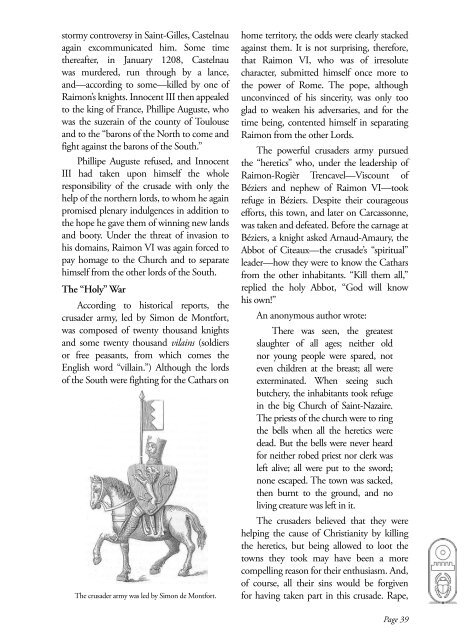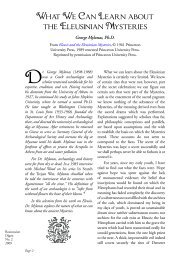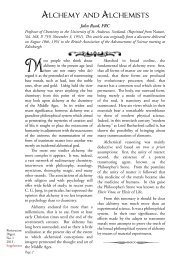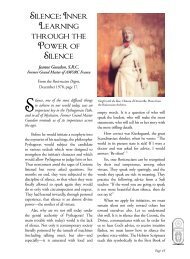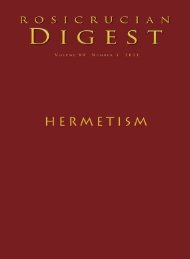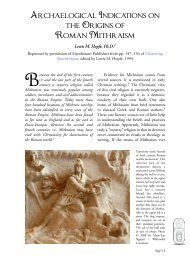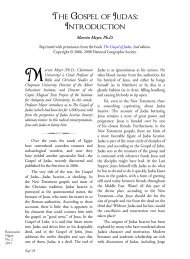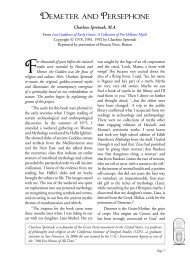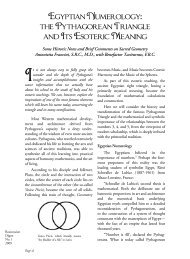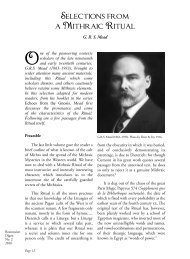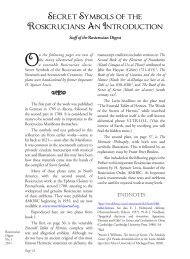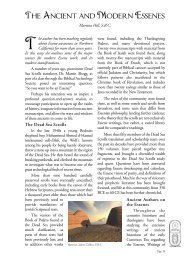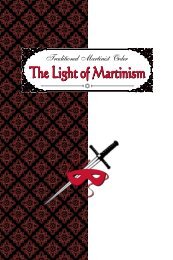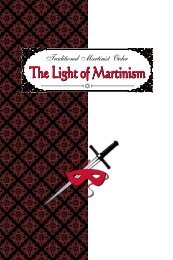Rosicrucian Digest Vol 89 No 2 2011 Gnosticism - Rosicrucian Order
Rosicrucian Digest Vol 89 No 2 2011 Gnosticism - Rosicrucian Order
Rosicrucian Digest Vol 89 No 2 2011 Gnosticism - Rosicrucian Order
Create successful ePaper yourself
Turn your PDF publications into a flip-book with our unique Google optimized e-Paper software.
stormy controversy in Saint-Gilles, Castelnau<br />
again excommunicated him. Some time<br />
thereafter, in January 1208, Castelnau<br />
was murdered, run through by a lance,<br />
and—according to some—killed by one of<br />
Raimon’s knights. Innocent III then appealed<br />
to the king of France, Phillipe Auguste, who<br />
was the suzerain of the county of Toulouse<br />
and to the “barons of the <strong>No</strong>rth to come and<br />
fight against the barons of the South.”<br />
Phillipe Auguste refused, and Innocent<br />
III had taken upon himself the whole<br />
responsibility of the crusade with only the<br />
help of the northern lords, to whom he again<br />
promised plenary indulgences in addition to<br />
the hope he gave them of winning new lands<br />
and booty. Under the threat of invasion to<br />
his domains, Raimon VI was again forced to<br />
pay homage to the Church and to separate<br />
himself from the other lords of the South.<br />
The “Holy” War<br />
According to historical reports, the<br />
crusader army, led by Simon de Montfort,<br />
was composed of twenty thousand knights<br />
and some twenty thousand vilains (soldiers<br />
or free peasants, from which comes the<br />
English word “villain.”) Although the lords<br />
of the South were fighting for the Cathars on<br />
The crusader army was led by Simon de Montfort.<br />
home territory, the odds were clearly stacked<br />
against them. It is not surprising, therefore,<br />
that Raimon VI, who was of irresolute<br />
character, submitted himself once more to<br />
the power of Rome. The pope, although<br />
unconvinced of his sincerity, was only too<br />
glad to weaken his adversaries, and for the<br />
time being, contented himself in separating<br />
Raimon from the other Lords.<br />
The powerful crusaders army pursued<br />
the “heretics” who, under the leadership of<br />
Raimon-Rogièr Trencavel—Viscount of<br />
Béziers and nephew of Raimon VI—took<br />
refuge in Béziers. Despite their courageous<br />
efforts, this town, and later on Carcassonne,<br />
was taken and defeated. Before the carnage at<br />
Béziers, a knight asked Arnaud-Amaury, the<br />
Abbot of Citeaux—the crusade’s “spiritual”<br />
leader—how they were to know the Cathars<br />
from the other inhabitants. “Kill them all,”<br />
replied the holy Abbot, “God will know<br />
his own!”<br />
An anonymous author wrote:<br />
There was seen, the greatest<br />
slaughter of all ages; neither old<br />
nor young people were spared, not<br />
even children at the breast; all were<br />
exterminated. When seeing such<br />
butchery, the inhabitants took refuge<br />
in the big Church of Saint-Nazaire.<br />
The priests of the church were to ring<br />
the bells when all the heretics were<br />
dead. But the bells were never heard<br />
for neither robed priest nor clerk was<br />
left alive; all were put to the sword;<br />
none escaped. The town was sacked,<br />
then burnt to the ground, and no<br />
living creature was left in it.<br />
The crusaders believed that they were<br />
helping the cause of Christianity by killing<br />
the heretics, but being allowed to loot the<br />
towns they took may have been a more<br />
compelling reason for their enthusiasm. And,<br />
of course, all their sins would be forgiven<br />
for having taken part in this crusade. Rape,<br />
Page 39


